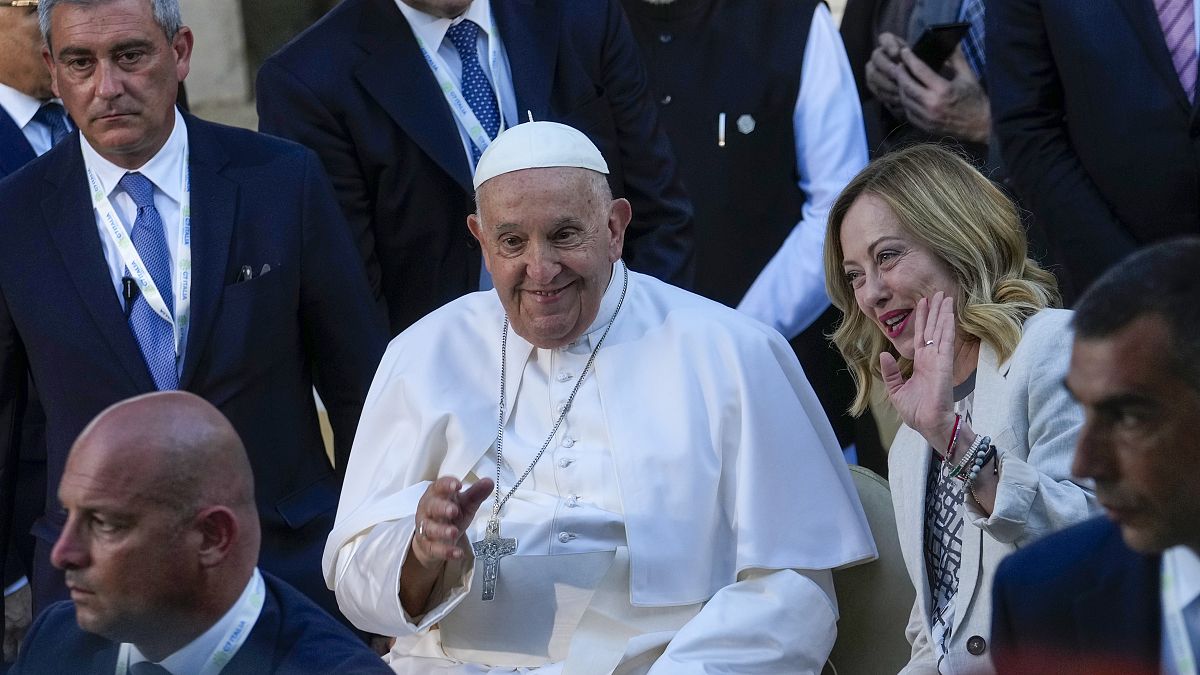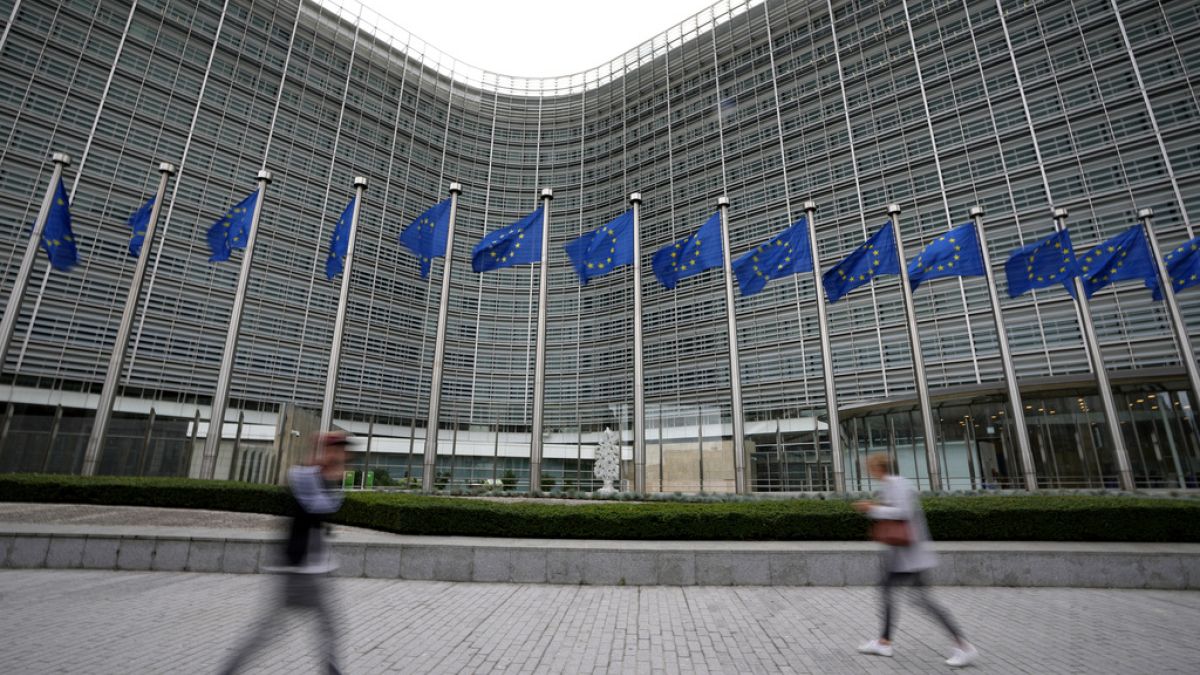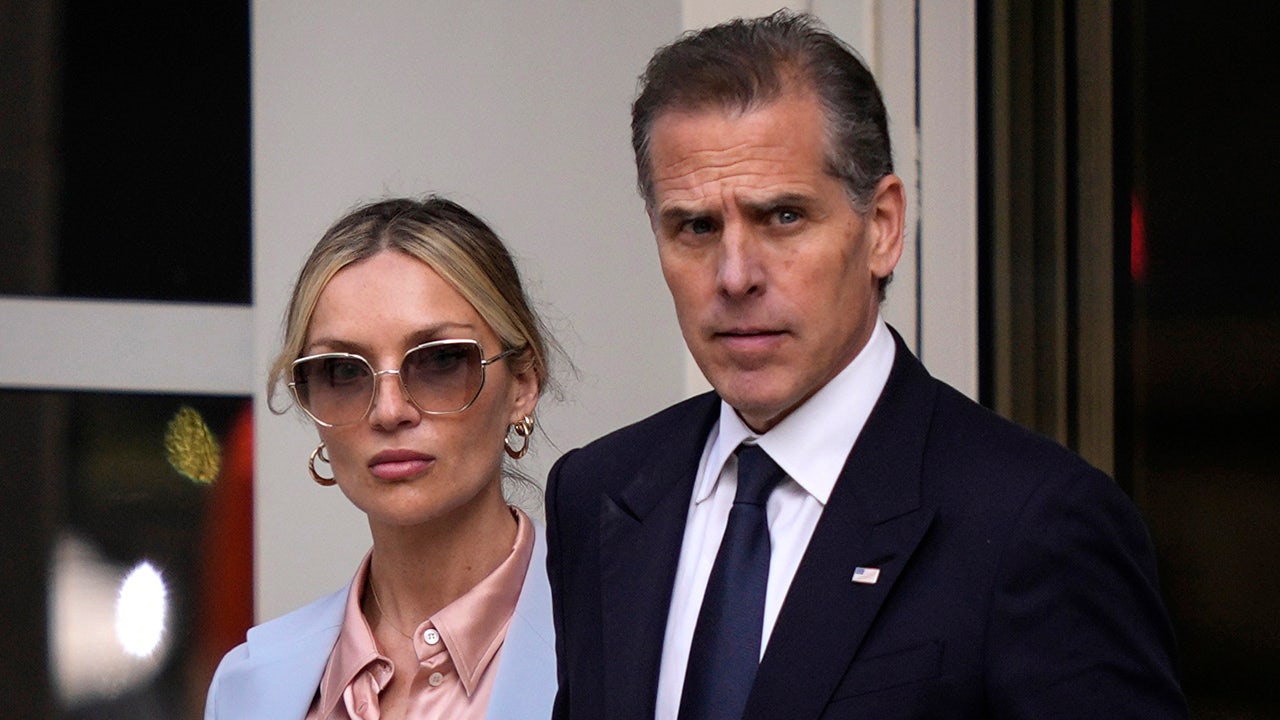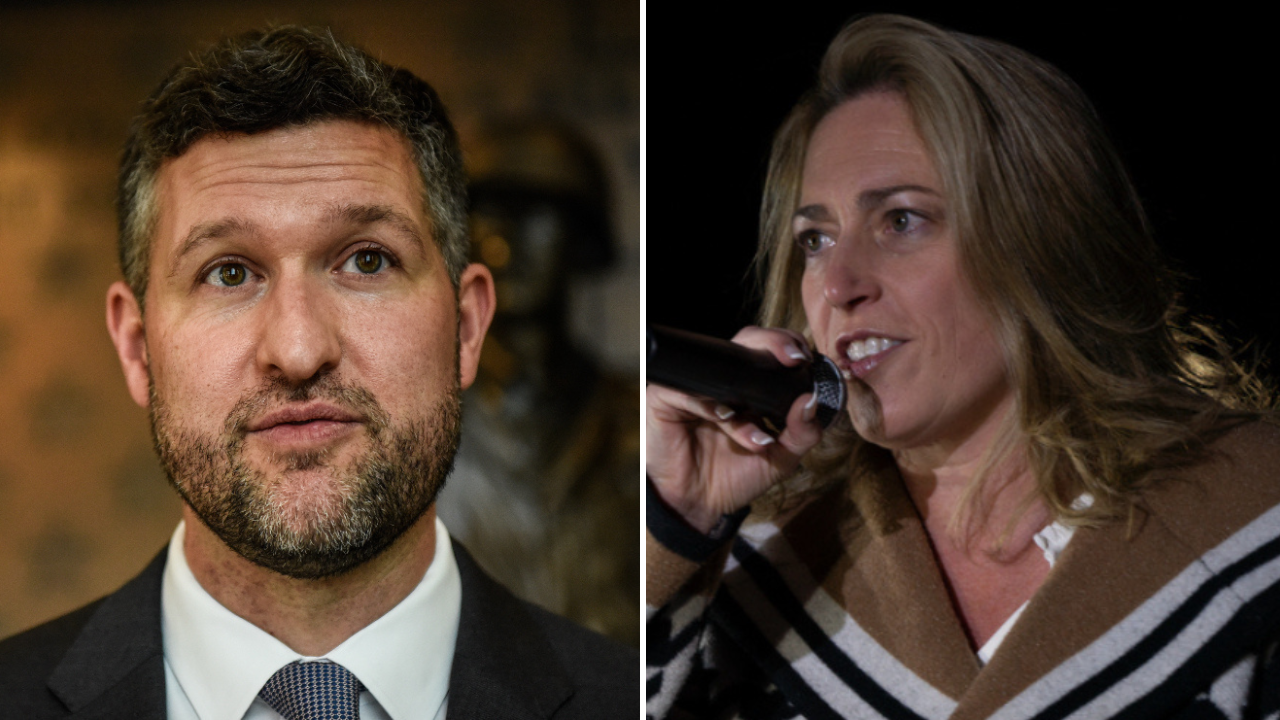World
Israel presses on with Gaza bombardments, including in areas where it told civilians to flee

RAFAH, Gaza Strip (AP) — Israeli warplanes struck parts of the Gaza Strip overnight into Saturday in relentless bombardments, including some of the dwindling slivers of land Palestinians had been told to evacuate to in the territory’s south.
The latest strikes came a day after the United States vetoed a United Nations resolution demanding an immediate humanitarian cease-fire in Gaza, despite it being backed by the vast majority of Security Council members and many other nations. The vote in the 15-member council was 13-1, with the United Kingdom abstaining.
“Attacks from air, land and sea are intense, continuous and widespread,” U.N. Secretary-General Antonio Guterres said before the vote. Gaza residents “are being told to move like human pinballs – ricocheting between ever-smaller slivers of the south, without any of the basics for survival.”
Guterres told the council that Gaza was at “a breaking point” with the humanitarian support system at risk of total collapse, and that he feared “the consequences could be devastating for the security of the entire region.”
Gaza’s borders with Israel and with Egypt are effectively sealed, leaving Palestinians with no option other than to try to seek refuge within the territory. The overall death toll in Gaza since the start of the war has surpassed 17,400, the majority of them women and children, according to the Health Ministry in Hamas-controlled Gaza, which does not differentiate between civilians and combatants in its count.
Israel holds Hamas responsible for civilian casualties, accusing the militants of using civilians as human shields, and says it’s made considerable efforts with its evacuation orders to get civilians out of harm’s way.
Palestinians mourn their relatives killed in the Israeli bombardment of the Gaza Strip, in front of the morgue at the hospital in Deir al Balah, Gaza Strip, on Friday, Dec. 8, 2023. (AP Photo/Adel Hana)
On Saturday, Gaza residents reported airstrikes and shelling in the northern part of the strip as well as in the south, including the city of Rafah, which lies near the Egyptian border and where the Israeli army had ordered civilians to evacuate to.
The main hospital in the central city of Deir al-Balah received the bodies of 71 people killed in bombings in the area over the past 24 hours, the Health Ministry said Saturday morning. The hospital also received 160 wounded, the ministry said. In the southern city of Khan Younis, the bodies of 62 people and another 99 wounded were taken to Nasser Hospital over the past 24 hours, the ministry said.
Israel has been trying to secure the military’s hold on northern Gaza, where furious fighting has underscored heavy resistance from the territory’s Hamas rulers. Tens of thousands of residents are believed to remain in the area despite evacuation orders, six weeks after troops and tanks rolled in during the war sparked by Hamas’ deadly Oct. 7 raid targeting civilians in Israel.
Israelis rush to a shelter as a siren sounds a warning of incoming rockets fired from the Gaza strip, in Tel Aviv, Israel, on Friday, Dec. 8, 2023. (AP Photo/Leo Correa)
About 1,200 people, mostly civilians, were killed in the Hamas raid, and more than 240 people taken hostage. A temporary truce saw hostages and Palestinian prisoners released, but more than 130 hostages are believed to remain in Gaza.
More than 2,200 Palestinians have been killed since the Dec. 1 collapse of the truce, about two-thirds women and children, according to Gaza’s Health Ministry.
Despite growing international pressure, the Biden administration remains opposed to an open-ended cease-fire, arguing it would enable Hamas to survive and pose a threat to Israel. Officials have expressed misgivings in recent days about the rising civilian death toll and dire humanitarian crisis, but have not pushed publicly for Israel to wind down the war, now in its third month.
“We have not given a firm deadline to Israel, not really our role,” deputy national security adviser Jon Finer told a security forum a day before the U.S. veto in the U.N. Security Council. “That said, we do have influence, even if we don’t have ultimate control over what happens on the ground in Gaza.”
Israeli Defense Minister Yoav Gallant argued a cease-fire would be a victory for Hamas. “A cease-fire is handing a prize to Hamas, dismissing the hostages held in Gaza, and signalling terror groups everywhere,” he said. “Stand with Israel in our mission – we are fighting for our future, and we are fighting for the free world.”
A delegation of foreign ministers from Arab nations and Turkey was in Washington to push the Biden administration to drop its objections to an immediate cease-fire. Jordanian Foreign Minister Ayman Safadi said Friday ahead of a meeting with Secretary of State Antony Blinken that Israel’s bombardment and siege of Gaza is a war crime, and one that is destabilizing the region.
As fighting resumed after a brief truce more than a week ago, the U.S. urged Israel to do more to protect civilians and allow more aid to besieged Gaza. The appeals came as Israel expanded its blistering air and ground campaign into southern Gaza, especially the southern city of Khan Younis, sending tens of thousands more fleeing.
“It was a night of heavy gunfire and shelling as every night,” Taha Abdel-Rahman, a Khan Younis resident, said by phone early Saturday.
Gaza’s Civil Defense Department said at least one person was killed late Friday in Rafah and others wounded in an airstrike on a family home.
The department posted images showing first responders and residents using flashlights and the light from cell phones to search the rubble of the house for potential survivors. One crane was seen removing the rubble while rescuers cut through iron poles amid collapsed concrete roofs.
Airstrikes were reported overnight in the Nuseirat refugee camp, where resident Omar Abu Moghazi said a strike hit a family home, causing casualties.
There were also airstrikes and shelling in Gaza City and other northern parts of the strip.
“It’s a routine,” Mohamed Abded, who lives in Gaza City’s Zaytoun neighborhood, said of the bombardment. “You have only one option: leave or they will kill you. That’s the case across the north.”
Israel has designated a narrow patch of barren coastline in the south, Muwasi, as a safe zone. But Palestinians who have headed there portrayed a grim picture of desperately overcrowded conditions with scant shelter and poor hygiene facilities.
“We didn’t see anything good here at all. We are living here in a tough cold. There are no bathrooms. We are sleeping on the sand,” said Soad Qarmoot, a Palestinian woman who was forced to leave her home in the northern town of Beit Lahiya.
“I am a cancer patient,” Qarmoot said late Friday as children circled a wood fire for warmth. “There is no mattress for me to sleep on. I am sleeping on the sand. It’s freezing.”
Imad al-Talateeny, a displaced man from Gaza City, said the area lacks basic services to accommodate the growing number of displaced families.
“I lack everything to feel a human,” he said, adding that he had a peaceful, comfortable life before the war in Gaza City.
“Here I’m not safe,” he said. “Here I live in a desert. There is no gas, no water. The water that we drink is polluted water.”
___
Magdy reported from Cairo and Becatoros from Athens, Greece.
___
Full AP coverage at https://apnews.com/hub/israel-hamas-war

World
South Africa's Ramaphosa set to be re-elected despite ANC hammering

World
Cambodian authorities burn $70M of seized illegal drugs in major crackdown

- Cambodian authorities have destroyed over seven tons of illicit drugs and ingredients.
- 4.1 tons of the destroyed substances were drugs like heroin, marijuana, methamphetamine, ecstasy and ketamine.
- Gen. Meas Virith said the destroyed drugs had a wholesale value of $22.7 million and a street value of nearly $70 million.
Cambodian authorities on Friday destroyed more than seven tons of illicit drugs and the ingredients for them, as a drug-fighting official said educating people about their danger is the best way of combating the illegal trade.
Some 4.1 tons of the destroyed items were drugs including heroin, marijuana, methamphetamine, ecstasy and ketamine that had been confiscated from traffickers across the country, the National Authority for Combating Drugs said. The remaining 3.2 tons were various chemicals and other ingredients used to produce illegal drugs, it said.
Gen. Meas Virith, secretary general of the drug-fighting agency, said the drugs that were burned in a brick kiln at a ceremony on the outskirts of the capital, Phnom Penh, had an estimated wholesale value of $22.7 million and a street value of nearly $70 million. Had they not been seized, they could have harmed millions of people, he said.
CAMBODIA’S PIONEERING POST-KHMER ROUGE ERA PHNOM PENH POST NEWSPAPER WILL STOP PRINT PUBLICATION
He said the best way now to fight illegal drugs is by educating Cambodians from all walks of life about the dangers they pose. To teach people not to use or traffic illicit drugs is better than just cracking down on those criminally involved, he said.
Cambodian officers burn drugs inside a brick kiln during a drug destruction ceremony to mark the International Day against Drug Abuse and Illicit Trafficking outside Phnom Penh, Cambodia, on June 14, 2024. (AP Photo/Heng Sinith)
“As you are aware, if we use only crackdown measures, then we need to do so repeatedly. Let’s say this year we burn these things, and next year we will do it again,” he said. “But if we invest in drug education, awareness and protection, then drug activities would be reduced.”
Meas Virith said the authorities pursued more than 3,800 drug-related cases in the first five months of this year, arresting more than 10,000 people, including foreigners.
The production and trafficking of synthetic drugs, especially methamphetamine, are at record highs in Southeast Asia and pose a major threat to its societies, according to the United Nations Office on Drugs and Crime.
“Seizures of crystal methamphetamine have increased year-by-year in Cambodia for the seventh year in a row, reaching over 1.4 tons in 2023, showing the ongoing expansion of the market for the drug in the country,” the U.N. agency said in a report last month.
“The amount of heroin seized doubled in 2023. This increase in heroin seizures was observed in multiple countries in East and Southeast Asia, possibly indicating a reinvigoration in the heroin market in the region after declining seizures the previous year.”
World
Pope Francis attends G7 summit in historic first

The pontiff brought his moral authority to bear on the Group of Seven, invited by host Italy to address a special session on the perils and promises of AI.
Pope Francis has addressed leaders at the G7 Summit in southern Italy, the first pontiff to do so.
Speaking at a special roundtable, the Pope challenged them to keep human dignity foremost in developing and using artificial intelligence, warning that such powerful technology risks turning human relations themselves into algorithms.
“Faced with the marvels of machines, which seem to know how to choose independently, we should be very clear that decision-making, even when we are confronted with its sometimes dramatic and urgent aspects, must always be left to the human person,” he said.
“We would condemn humanity to a future without hope if we took away people’s ability to make decisions about themselves and their lives, by dooming them to depend on the choices of machines.”
Francis brought his moral authority to bear on the Group of Seven, invited by host Italy to address a special session on the perils and promises of AI.
In doing so, he offered an ethical take on an issue that is increasingly on the agenda of international summits, government policy and corporate boards.
Francis said politicians must take the lead in making sure AI remains human-centric, so that decisions about when to use weapons or even less-lethal tools always remain made by humans and not machines.
He also took a swipe at autonomous weapons, saying it should never be left to machines to decide whether or not to kill a person.
“Allow me to insist, in light of the tragedy that is armed conflict, it is urgent to reconsider the development and use of devices like the so-called ‘lethal autonomous weapons’ and ultimately ban their use. This starts from an effective and concrete commitment to introduce ever greater and proper human control. No machine should ever choose to take the life of a human being,” he said.
The G7 final statement largely reflected his concerns. Leaders vowed to better coordinate the governance and regulatory frameworks surrounding AI to keep it ‘human-centered.’
At the same time, they acknowledged the potential impacts on the labour markets of machines taking the place of human workers and on the justice system of algorithms predicting recidivism.
“We will pursue an inclusive, human-centred, digital transformation that underpins economic growth and sustainable development, maximizes benefits, and manages risks, in line with our shared democratic values and respect for human rights,” they said.
By attending the summit, Francis joined a chorus of countries and global bodies pushing for stronger guardrails on AI following the boom in generative AI kickstarted by OpenAI’s ChatGPT chatbot.
On the weapons issue, G7 leaders said they recognised the impact of AI in the military domain “and the need for a framework for responsible development and use.” They encouraged states to make sure “military use of AI is responsible, complies with applicable international law, particularly international humanitarian law, and enhances international security.”
-

 Movie Reviews1 week ago
Movie Reviews1 week agoFilm Review: I Used To Be Funny offsets its humorously-adjacent title with a dark, heartbreaking temperament. – The AU Review
-

 News1 week ago
News1 week agoWoman handcuffed in police car hit by freight train reaches $8.5M settlement
-

 World1 week ago
World1 week agoEconomy, migration: Voters' main concerns ahead of elections
-

 Politics1 week ago
Politics1 week agoTrump campaign accelerates vetting of potential running mates
-

 Politics1 week ago
Politics1 week ago'It's absurd': Congress takes bipartisan action after Cuban officials' tour secure parts of major airport
-

 Politics1 week ago
Politics1 week agoHunter Biden trial enters 3rd day with cross-examination of FBI agent
-

 News1 week ago
News1 week agoIsrael used a U.S.-made bomb in a deadly U.N. school strike in Gaza
-

 World1 week ago
World1 week agoFamine ‘likely’ already stalking northern Gaza: Report


















